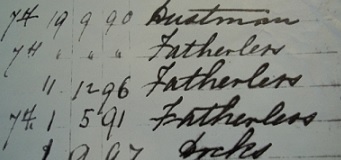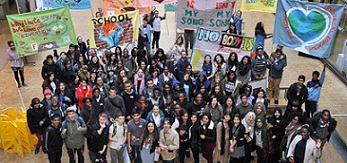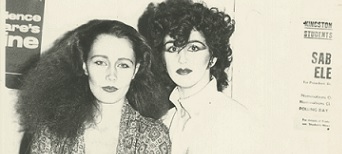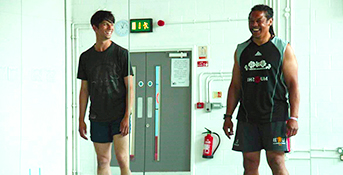Researchers-In-Residence Scheme
Emergency Exit Arts and Zafeirenia Brokalaki from King’s College London
ROUND 3
Read more
Zafeirenia Brokalaki’s residency at EEA looked into developing way to collect details of participants and to design tools for future information collection. It was hoped that her time with the company could impact their understand of their audiences and increase revenues. 
Ragged School Museum and Dr Peter Mitchell from Queen Mary University of London
ROUND 3
Read more
Working with three surviving registers that are housed at the London Metropolitan Archives Dr Mitchell transcribed 2,612 entries, approximately accounting for around half the schools overall roster of students. Dr Mitchell presented the transcriptions alongside a detailed report on the residency. 
The Culture Capital Exchange and Dr Peter Mitchell from Queen Mary University of London
ROUND 3
Read more
Partnering with Dr Peter Mitchell from Queen Mary University London The Culture Capital Exchange hoped to conduct research into their archive of events and activities in order to develop deeper understandings which can be used to create more productive relationships between research and creative communities. 
Spread the Word and Luke Kelly from Birkbeck University of London
ROUND 3
Read more
Researching in residence Luke Kelly took five games as case studies: Sherlock: The Network, The Black Crown Project, Blue Toad Murder Files, Inanimate Alice and Zombies, Run! Each game was selected on the merit of its written content, Kelly’s analysis detailed the mechanics of the game, profiled the a writer, developer or producer who worked on its creation, and outlined how narrative was factored in. 
The Sorrell Foundation and Katherine Appleford from Kingston University London
ROUND 3
Read more
Appleford’s research was split into three key sections: assessing The National Art&Design Saturday Club’s impact, creating predication of how governmental educational policy will affect the industry, e.g. by discouraging young people from pursuing creative professions, and conducting research into the history of Saturday Clubs from the 60s and 70s. 
Movingstage Marionette Company and Nenagh Watson from The Royal Central School of Speech & Drama
ROUND 3
Read more
Working with the archive, once owned by the influential theatre designer, director and actor, Edward Gordon Craig (1872-1966), Nenagh Watson looked to assess the collection, explore potential for its translation into an exhibition and whether it could be used to raise the profile of the Movingstage Marionette Company and The Puppet Theatre Barge, placing them on the heritage and tourism map. 
Helen Storey Foundation and Robert Knifton from Kingston University London
ROUND 3
Read more
Knifton’s work included a photo shoot creating over seven hundred images for the archive. Taken in a scientific manner these images have conceptually reinvigorated the archive, helping the foundation see the archive in a deeper and more strategic sense. 
Corey Baker Dance and Daniel Strutt from Goldsmiths University of London
ROUND 3
Read more
As an Associate Lecturer in Goldsmith’s Department of Media and Communication Strutt brought a new range of expertise to Corey Baker Dance, his research into digital visual arts helped inform and influence new strategies, and he was able to bring multiple ideas and concepts to the table. |
Creativeworks London is one of four Knowledge Exchange Hubs for the Creative Economy funded by the Arts and Humanities Research Council (AHRC) to develop strategic partnerships with creative businesses and cultural organisations, to strengthen and diversify their collaborative research activities and increase the number of arts and humanities researchers actively engaged in research-based knowledge exchange.